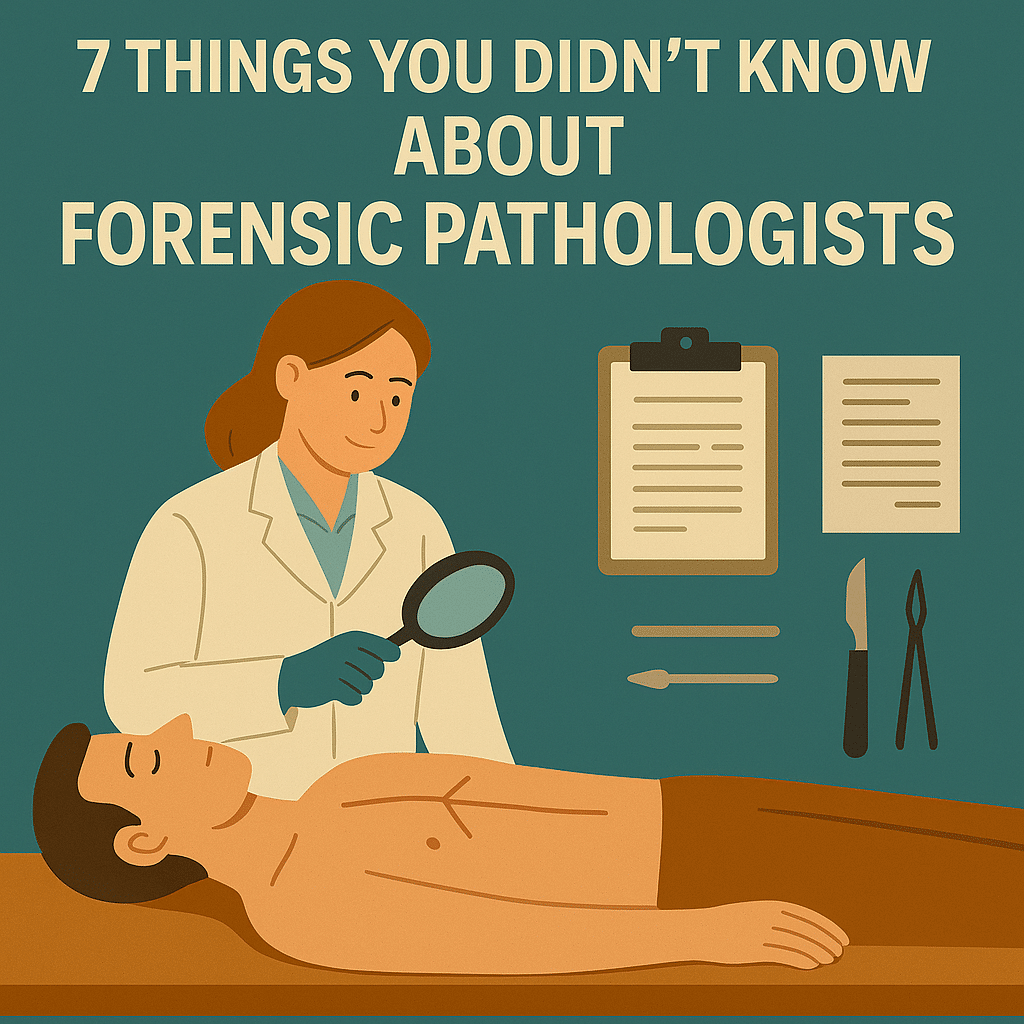7 Things You Didn’t Know About Forensic Pathologists
Forensic pathologists play a crucial role in uncovering the truth behind unexpected deaths. Often seen as mysterious figures on TV shows, the reality of their work is more complex, scientific, and impactful than most people realize. Whether you are considering a career in forensic pathology or are simply curious, here are seven things you probably did not know about these medical detectives.
1. They Are Medical Doctors With Specialized Training
Becoming a forensic pathologist takes many years of education and training. They complete medical school, followed by a residency in pathology, and then a fellowship specializing in forensic pathology. This rigorous training gives them the knowledge and skills to examine bodies, interpret medical evidence, and provide expert testimony in court.
2. Their Work Extends Beyond Crime Scenes
Although forensic pathologists are often associated with criminal cases, they investigate all types of deaths. This includes natural deaths, accidents, suicides, and cases where the cause is unknown. Their findings help families find closure and support public health by identifying trends like disease outbreaks or drug-related deaths.
3. Most of Their Work Happens in the Morgue, Not at Crime Scenes
Contrary to what many TV shows suggest, forensic pathologists rarely visit death scenes. Instead, they conduct autopsies in a morgue or laboratory. They examine the body, collect samples, and analyze injuries or diseases that could explain the cause of death. The information gathered at the scene is usually provided by investigators or coroners.
4. They Must Be Precise and Detailed
Accuracy is critical in forensic pathology. Every observation and finding must be meticulously documented because these records can influence legal decisions, insurance claims, and public health policies. Even small details can be important in determining the manner and cause of death.
5. They Often Testify in Court
Forensic pathologists frequently appear as expert witnesses. Their role is to explain complex medical findings in a way that judges, juries, and lawyers can understand. Their testimony can help prove or disprove criminal charges, and they must be prepared to face tough questioning.
6. The Job Can Be Emotionally Challenging
Working closely with death, often in tragic or violent circumstances, requires emotional strength and resilience. Forensic pathologists must maintain professionalism and compassion, supporting families and helping the justice system while managing the psychological toll of their work.
7. They Play a Vital Role in Public Health
Beyond individual cases, forensic pathologists contribute to broader health initiatives. By identifying causes of death related to diseases, substance abuse, or environmental hazards, they provide data that can shape public health responses and prevention strategies.
Final Thoughts
Forensic pathologists combine medical expertise with investigative skill to serve justice, support families, and protect communities. Their work is demanding and requires dedication, but it is also deeply meaningful. If you are fascinated by science and motivated to make an impact, this career offers a unique way to do both.
If you have feedback, questions, or ideas for future articles or Information Hubs, please contact us. Your insights help us create valuable content.


